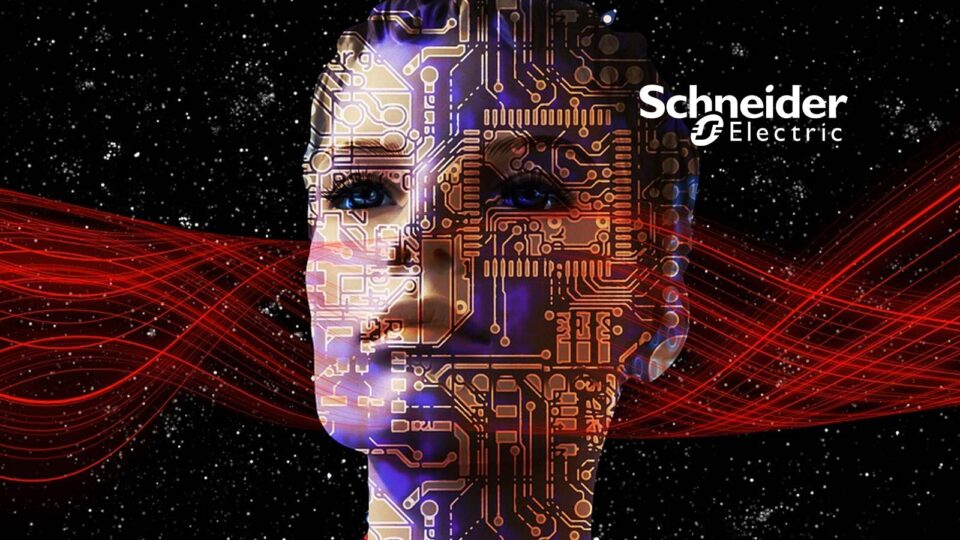Schneider Electric presents a new framework for future-proofing buildings developed in conjunction with the World Economic Forum (WEF) to accelerate the investment needed to deliver a greener urban built environment
New modelling reveals two to three-fold increase required in rate at which European building stock is retrofitted to meet Paris Agreement commitments
The company announces the creation of 2,500 green jobs worldwide to aid the acceleration of climate action across all facets of the economy
Schneider Electric, the leader in the digital transformation of energy management and automation, is calling for an urgent rethink of investment priorities and greater collective action to spur global climate change efforts at the upcoming WEF in Davos.
Latest ITechnology News: Mushiny launches its first global R&D center in Nanjing and unveils cutting-edge robot & robot management system
Scenarios by Schneider’s Sustainability Research Institute shows that stimulating a demand-led transition is the only scenario in which emissions will fall fast enough to limit global warming to 1.5 degrees. The Research Institute will be launching the Towards Net Zero Buildings: a practical pathway e-book at Davos, looking at how the current deadlock of supply vs. demand can be broken. Key findings include:
- Just 1-1.5% of building stock in Europe is renovated each year. Renovation levels need to reach 3% a year to meet Paris commitments
- Financing remains biggest obstacle to investment in sustainable buildings1 but investing in decarbonization technologies, digital and city ecosystem services maximize value creation for all stakeholders
- Energy efficiency technology provides significant opportunities to reduce energy consumption ranging from 10 to 60%, depending on geographies and quality of existing assets
- Digital energy efficiency solutions bring 20-30 percent carbon abatement across the building stock, bringing highly competitive paybacks and cost savings for consumers, well below 8 years in average
The e-book provides a practical roadmap for governments and industries to balance the costs of the energy transition with the additional burden on communities, particularly in the current unpredictable climate. It also features a new framework for future-proofing buildings for buildings developed in conjunction with WEF which presents a model and a toolkit to accelerate investment to decarbonize cities. Importantly, the framework emphasizes the need to unlock value for all. Through the adoption of existing technologies that abate carbon and deliver a net benefit to consumers, while creating value for the economy and communities.
Schneider Electric has been on its own sustainability journey, paving the way as an Impact company for the past 20 years, and believes that accelerating action against a backdrop of high and volatile energy prices, requires a shift in strategy. In addition to investment to increase renewable energy capacity, creating demand for clean energy via a consumer-driven transition is now essential.
Latest ITechnology News: Tata Communications launches DIGO integrated platform for converged and contextual conversations
In line with this approach, Schneider Electric is also announcing the creation of 2,500 green jobs worldwide to aid the acceleration of climate action across all facets of the economy. The jobs, primarily field services roles, will focus on helping Schneider’s customers digitize and decarbonize facilities, modernizing assets by promoting a sustainable and circular economy approach and providing advice on sustainability strategies.
“Investment in renewable energy must continue apace, but every energy transition in history has been driven by market demand. Shifting to a consumer-centric, demand-led investment approach will not only deliver decarbonization at scale, but will also achieve more encouraging outcomes than current modelling suggests,” – said Jean-Pascal Tricoire, Schneider Electric’s Chairman & CEO. “Consumers lead the change. This means demand leads the change. Disrupting demand with new technology and bringing benefits to the user must be the priority.”
Schneider Electric’s representatives at DAVOS 2022
In his role as co-chair of the Forum’s Net Zero Carbon Cities initiative, Jean-Pascal Tricoire will call for a change in investment priorities. This requires moving from cost to value-centric investment criteria, expanding the current focus on infrastructure to investments that fuel demand and moving from over-indexing on hardware to software-enabled sustainable solutions. He will also discuss the need for greater collaboration to move to a low-carbon economy faster.
Luc Remont, Schneider Electric’s Executive Vice President of International Operations will talk about the importance of digital technologies in enabling the energy transition in emerging markets and major new partnerships in India, East Asia and South America to empower workforces and train more people in energy management.
Barbara Frei, Schneider Electric’s Executive Vice President of Industrial Automation will discuss the repercussions of a switch to an increasingly supply-led economy and how transformation from a linear to a circular supply chain model is essential for a sustainable future. She will be talking about the struggles companies face moving from resource intensive production and consumption to low carbon, efficient processes and the role of technologies, collaboration platforms and interoperability in solving these challenges. She will also be discussing the need for manufacturers to refocus their digital transformation journeys towards workforce engagement to attract talent and create safer working environments. She’ll be sharing her perspectives on how augmented automation can empower workforces and improve productivity.
Peter Weckesser, Schneider Electric’s Executive Vice President and Chief Digital Officer will provide perspectives on the transformative role of data and artificial intelligence in advancing business strategies that simultaneously address the biggest challenges ahead of industries: resilience and decarbonization. He will also be discussing the opportunities and values that can be captured today through digital ecosystem collaboration and deployment of innovative technologies at scale – and across the enterprise.
Latest ITechnology News: Parks Associates 34% of MDU Property Managers Offer IoT Devices in at Least One Property They Manage
[To share your insights with us, please write to sghosh@martechseries.com]


